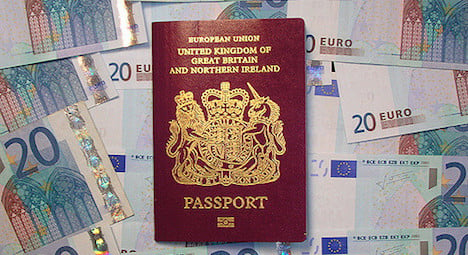
Want one? https://t.co/1d2tFefSUg If you agree, share. #stillEU pic.twitter.com/L9GjgDHu5g
— Stuart Bonar (@StuartBonar) October 27, 2016
The 16 million Brits who voted to stay in the EU could soon be deprived of their European citizenship. EU countries should let them keep it, says Swedish learner Stuart Bonar.


Want one? https://t.co/1d2tFefSUg If you agree, share. #stillEU pic.twitter.com/L9GjgDHu5g
— Stuart Bonar (@StuartBonar) October 27, 2016